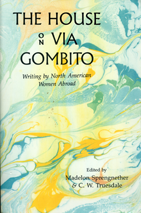The largest city in Florida until the late 1890s was Key West, so I recently learned. We were perusing the exhibits in the Key West historical museum, one of which featured the story of Cuban cigar makers who set up shop across the brief interlude of ocean between the “last” key and Havana.
It’s hard for anyone born after 1970 (who doesn’t live in S. FLorida) to take in how intimately south Florida and Cuba have been connected–industrialist Flagler might as well have built his long railroad (which connected mainland Florida and Key West) in a more southerly direction. Havana was a romantic destination by steamer for decades before politics put a cabash on our association with that island. Of course since the “Cuban Missle Crisis of 1962-3” the U.S. has kept Cuba at arms length. It’s not easy to visit that island except by a diplomatic back door, usually Belize.
I’m musing about this because Key West, like modern Miami but much earlier, had a Cuban flavor. This was due largely to Cubans bringing their cigar-making across the spit of ocean to Key West. Near our 50s-style motel we passed the Gato Cigar company building: it was one of many large and small cigar-manufacturing enterprises, one of which was founded by a woman!
Segue to Pittsburgh at the turn of the last century. Imagine an Italian-American family with three daughters, the oldest of whom became my grandmother, but the youngest of whom lived into her 90s, giving me lots of opportunities to know her and two of her three daughters: Josephine or as we said, Aunt Jo.
Family lore includes the tale of her being “sent” south to Tampa from Pittsburgh. She was sixteen. Her goal was to stay with an Italian-American Protestant minister who’d migrated to Tampa from Pittsburgh. His connection to our family remains sketchy, but the Protestant element must have been a major part, for Josephine’s father had converted to Protestantism in Sicily. He became a Waldensian, which had almost no meaning in Pennsylvania. Eventually he preached to a Presbyterian congregation, and on the side converted my soon-to-be grandfather to do the same.
Back to Josephine: like her sisters she was talented in playing the piano. “Her little fingers flew up and down the keys,” her daughters Sadie and Eleonora would tell me years later. I saw some of that myself. She also played the organ for her father’s church services, starting at the age of eight. Falling asleep during the sermons, she’d have to be roused by her father raising his voice at the concluding prayer to make sure she was alert enough for the final hymn.
In Tampa, her host family also engaged her at the organ or piano, but she became involved with Cuban cigar makers, because they were the “target” audience for the minister’s conversions. This Italian-American minister worked during the week as a reader in the cigar factories. There in Key West I found exactly depicted this phenomenon: during their long hours rolling and shaping tobacco leaves, the cigar makers were entertained (and kept awake) by a “lecteur” if I have the word correct. As much actor as reader, this gentleman performed literature–of what type I know not. But he was a key part of the industrial process.
Enter the cigar makers into Josephine’s story: they serenaded her under her host’s window, night after night, her lovely reddish curls and sweet smile, not to mention fingers flying up and down the religious keys, won the hearts of single, young gents, immigrants like herself. By the time she arrived in Tampa to play out this charming and slightly racy escapade, the Key West Cuban cigar makers had pulled out of the lower town and brought their businesses north to Tampa. Why? According to the Key West historical society, because at least one owner refused to negotiate higher wages when his workers went on strike. Whether he left them in the lurch and hired new workers in Tampa, I don’t know. But the workers Josephine encountered were Cuban, speaking a language which is Italian’s kissing cousin.
“Why do you think her family sent her all alone down the East Coast to Tampa?” asks my husband as I relate this daring and romantic tale. “A girl of sixteen, sent out of town?” he continues. “What do you think that suggests?”
I look at him with the innocence that is at the heart of how I view these adorable relatives. Then the light goes on: “Oh,” I say, somewhat abashed. “But nobody ever said a word about that!”


Leave a Reply